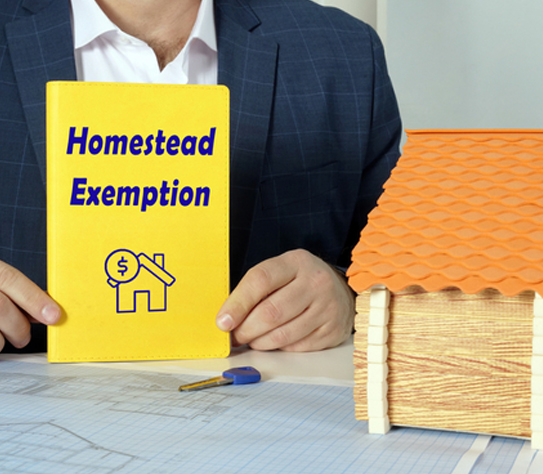The Florida Homestead Exemption and Your Estate Plan: What You Need to Know

Florida’s homestead exemption is a powerful legal protection that affects both your property and your estate plan. While most homeowners understand that it provides a break on property taxes, few realize how it can shape asset distribution and impact the legal responsibilities of surviving family members.
At Pyle, Dellinger & Naylor, we help clients across Daytona Beach and surrounding areas use Florida’s homestead protections to strengthen long-term estate planning goals.
How the Homestead Exemption Works
Florida’s homestead exemption offers a reduction in the taxable value of your primary residence, with savings up to $50,000. However, its value extends beyond annual tax relief. The exemption protects your home from most creditors and adds essential restrictions on how the property can be transferred after your death. If your estate plan doesn’t account for these legal limits, your intended beneficiaries may face challenges, delays, or disputes during probate.
Inheritance Rules You Cannot Ignore
Even with a valid will, Florida law may prevent you from freely choosing who inherits your homestead. If you are married or have minor children at the time of death, your homestead may be legally required to pass to your surviving spouse or children in specific ways. These rules override the terms of a will that conflict with statutory protections.
Working with an estate planning attorney can help you structure your plan in a way that respects Florida law while still honoring your preferences. Without proper legal advice, you could unintentionally create a situation where your surviving spouse receives a life estate or your children inherit unequal interests.
Creditor Protection During and After Life
One of the key advantages of the Florida homestead exemption is the protection it offers against most unsecured creditors. Whether you pass away with outstanding debts or face lawsuits during your lifetime, your primary residence may remain shielded if it qualifies under homestead rules. That said, this protection does not apply to all types of debt, such as mortgages, property taxes, or liens for home improvements.
Preserving that protection after death requires proper estate planning. Placing the homestead in a revocable trust can be beneficial, but only if the trust is drafted in a way that complies with Florida’s homestead laws. Our estate planning attorneys regularly assist with trust language and title transfers that help maintain this protection across generations.
When Trusts and Homestead Property Overlap
Adding homestead property to a revocable living trust can simplify estate administration, especially for families aiming to avoid probate. However, mistakes in the trust’s setup or execution can result in your family incurring both financial losses and compromised protection. The language must ensure you maintain the property as your primary residence and preserve your legal rights as a Florida homeowner.
Our trust attorneys understand how to coordinate trust planning with homestead law. This is especially useful for households with minor children or multiple adult beneficiaries. Proper structuring ensures that your home can be distributed according to your wishes without triggering unwanted tax consequences or legal complications.
Why Proper Planning Is Crucial
Failing to plan around Florida’s homestead exemption can leave your estate in disarray. Courts will follow Florida statutes, not necessarily your intentions when it comes to distributing homestead property. Additionally, creditor protection may be lost if assets are titled incorrectly or if the terms of the trust conflict with constitutional requirements.
If you live in Ormond Beach, Palm Coast, Port Orange, or anywhere in Volusia or Flagler County, you should not rely on generic legal templates or assumptions about how property will pass. Our team can help evaluate your full estate picture and create documents that account for your unique family situation.
Early Support Leads to Better Outcomes
If you are drafting your first estate plan or updating an existing one, homestead protection should be a top priority. At Pyle, Dellinger & Naylor, we take time to explain how homestead laws interact with wills, trusts, and probate. Many of our clients are surprised to learn that their existing plans do not fully protect their home or comply with Florida law.
Our firm works closely with residents across Volusia County to revise outdated plans, correct titling errors, and prevent avoidable disputes. By working with legal counsel early, you gain clarity and peace of mind about your property’s future.
Build a Stronger Estate Plan With the Right Guidance
Florida’s homestead exemption offers more than tax savings. Taking the proper legal steps can help protect your home and family.
At Pyle, Dellinger & Naylor, we guide clients in Daytona Beach and surrounding communities through strategic planning that addresses homestead law, inheritance goals, and asset protection. With more than 25 years of experience in estate law, probate, and trust administration, our firm helps you prepare with clarity and confidence. Contact us today to schedule a personalized consultation.





